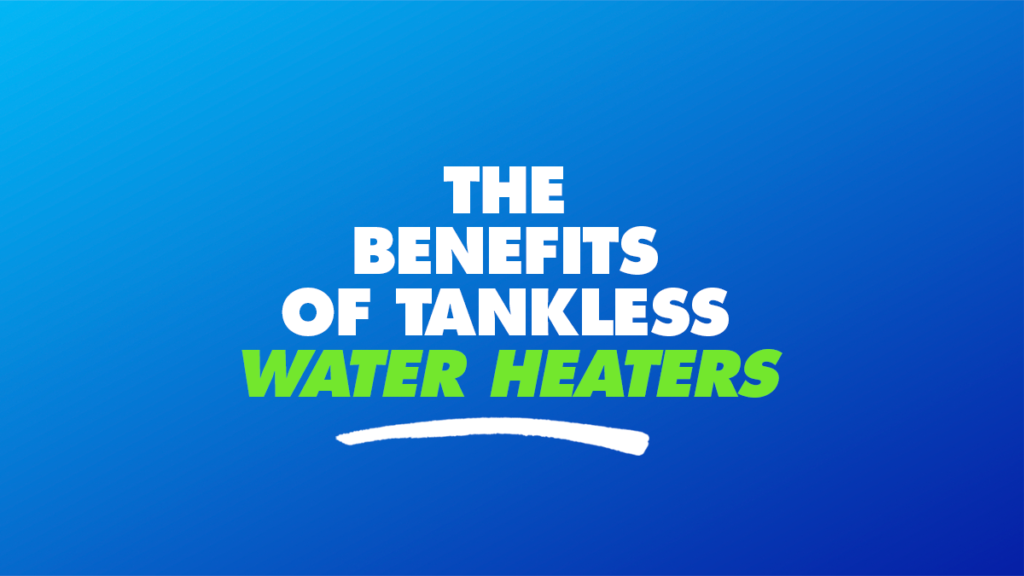Tankless water heaters are just one of many new appliances being used to create more energy-efficient homes. If your current system is on its way out and you’re considering which option is best for you moving forward, educating yourself on the pros and cons of tankless water heaters may help inform your decision.
Read on to learn more about tankless water heaters and whether or not they’re a good choice for your home.
What Are the Pros and Cons of Tankless Water Heaters?
Pros of Going Tankless
#1: More Hot Water
While different factors affect how quickly you receive hot water as soon as you turn a faucet, tankless water heaters offer a continuous flow of hot water. Since the water is heated as it runs through the system on-demand and not stored away in a tank, you won’t run out of hot water with a tankless system, so long as other appliances or areas of the home aren’t sourcing hot water simultaneously.
#2: Efficiency and Lifespan
Because tankless systems run on an as-needed basis, they’re more efficient and end up costing you less in the long-term. And while the up-front cost is higher, their lifespan is much longer. A standard, high-quality water heater will last around ten years, while a tankless system has a life expectancy of 20.
#3: Space Saving
Another benefit of going tankless is the amount of space saved. A 40 to 60-gallon hot water heater can take up a large amount of space, while a tankless system takes up about half of the space of traditional water heaters.
Cons of Going Tankless
#1: Conditional Output
Reduced output of hot water may occur with increased demand. Say you’re running the dishwasher while taking a shower. You may experience a shortage of hot water within a certain amount of time, as the water that is being heated on-demand is being routed to two separate locations in the home.
#2: No Hot Water During Power Outages
This is a big one for some people, but there is an affordable workaround. Because tankless water heaters run off electricity, if you experience a power outage due to a storm or high winds, your system will fail you. That said, there are rechargeable backup-batteries specifically designed for tankless water heaters and can be purchased for a few hundred dollars.
#3: Higher Upfront Costs
Like we said before, going tankless will be met with higher upfront costs than traditional tank systems. Depending on your outlook on the longevity and efficiency of your system will help determine which water heater is best for your (and your wallet). Tankless can last up to two times longer than traditional systems, so if you’re in your home for the long haul, this option may be preferred.
Want to learn more about the price of tankless water heaters? Contact Eric Krise Plumbing, Heating, and Cooling, and we’ll provide a free quote!




